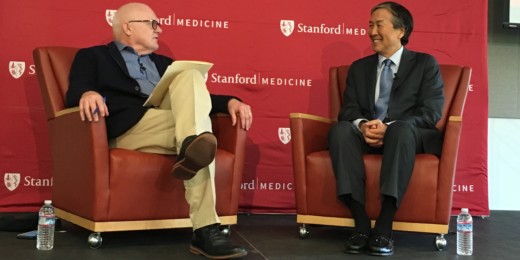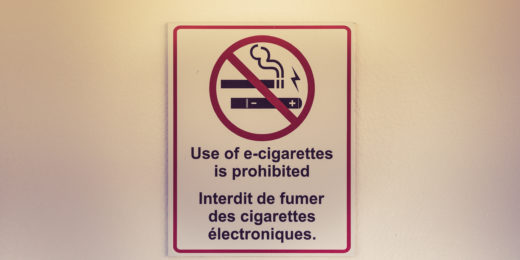There’s no good evidence for using marijuana for common complaints, and the products sold in cannabis dispensaries pose risks to kids and teens.
Category: Addiction
Third-hand smoke increases asthma severity in mice
Exposure to 'third-hand smoke' — that is, the chemicals left behind on household surfaces after smoke has dissipated — increases the severity of asthma symptoms in mice. Stanford researchers are working to learn how this happens, and whether it might be possible to protect people with asthma from this exposure.
Tackle opioid addictions at the onset, the doctor’s office, Stanford researchers urge
In a JAMA opinion piece, Gary Peltz and Tom Sudhof argue for policymakers and health leaders to combat opioid addictions early.
Prevention and health disparities demand greater attention, public health leader Howard Koh says
Howard Koh, MD, former assistant secretary of health in the Obama Administration, spoke recently in a Stanford Health Policy Forum discussion.
From loss to a legacy of hope: A father makes a gift to advance addiction medicine
After his daughter died of a drug overdose, George Ting established the Esther Ting Memorial Professorship in Addiction Medicine at Stanford.
“A toxicological experiment”: Additional study needed on e-cigarette use
Researchers have studied the complex chemical composition of e-cigarette vapors to predict their health impacts on users and those around them.
Despite policies, tobacco products marketed on Facebook, Stanford researchers find
Facebook prohibits paid tobacco advertising, but Stanford researchers found brands and vendors marketing their products through unpaid content, in apparent conflict with the rules or their spirit.
Teen nicotine use: Toolkit provides info on the latest trends
The Stanford-based Tobacco Prevention Toolkit offers a resource for educators and young people to learn about tobacco product use and their health.
Spotlight on prescription drug abuse: A Q&A with a Stanford psychiatrist and addiction researcher
Years into the opioid epidemic, Stanford psychiatrist and addiction researcher Anna Lembke cites signs of slow improvement and comments on benzodiazepines.
“Slow and steady wins this race”: Stanford pain specialist studies opioid tapering
Stanford pain expert Beth Darnall discusses her clinical trials on methods to taper opioid doses for patients with chronic pain.











